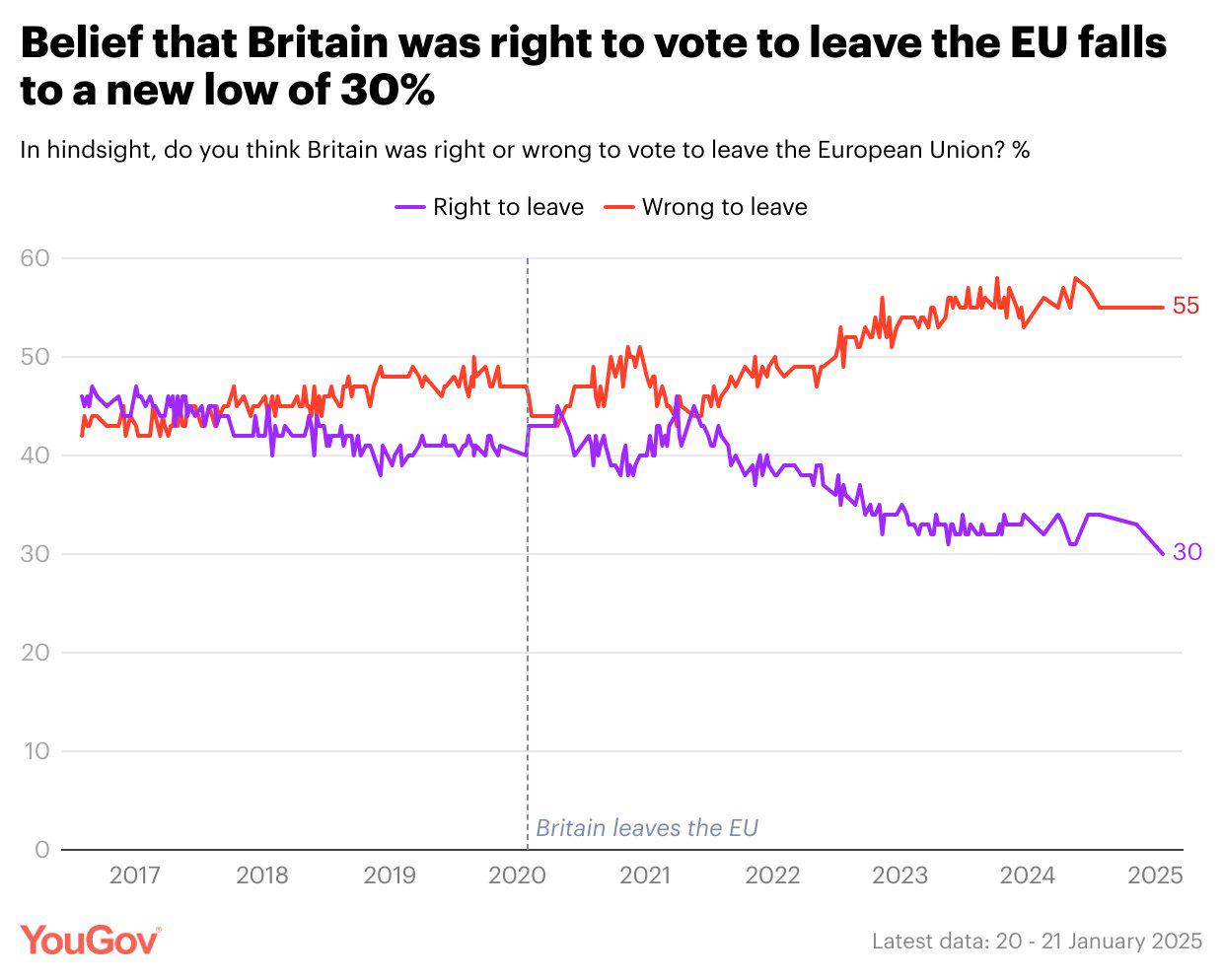That’s fair. Thanks!
UK ministers, including chancellor Rachel Reeves who will travel to Brussels on Monday, have said they are seeking a “very ambitious” reset of the UK’s security and trading arrangements with the EU when talks begin next year. However a 19-page working paper setting out EU interests observed there were “limited” economic gains on offer as a result of the UK’s own red lines ruling out rejoining the EU’s single market or customs union, or accepting free movement of people. “A significant further reduction of trade frictions with a close trading partner, such as the United Kingdom, would be in the interest of the European Union. This, however, would require a different model for co-operation,” it said.
Same old same old
Tatsächlich war es in Abschnitt 5.
Yes that’s why I copied the conclusion 👻🎃💀
Reuters interviewed 20 people under the age of 30 to understand their support. The most common reason given for backing the former president was inflation and the perception the economy was not working for them, underscoring how the rise in prices for daily staples is more salient for some than high stock prices and low unemployment during the Biden years. […] At the same time, a majority said they agreed with Trump's reticence about aiding Ukraine in its war with Russia, an isolationist stance at odds with Biden's foreign policy agenda.
The UK government has told the country’s port authorities that it will not “turn on” critical health and safety checks for EU imports when post-Brexit border controls begin this month because of the risk of “significant disruption”.
In a presentation seen by the Financial Times, the Department for Environment, Food and Rural Affairs (Defra) outlined a plan to avoid queues of lorries at ports, revealing that if the new border measures were implemented as planned big delays could follow.
Since announcing new border controls on plant and food products last year the government has promised it would “phase in” checks, which trade groups have warned will hurt small businesses and drive up the price of food.
However, just over a fortnight before physical inspections are set to begin, the presentation last week made clear that the new border systems will not be fully ready.
In order to get around the problem, the government said it would ensure the rate of checks was initially “set to zero for all commodity groups” — essentially switching off large parts of the risk management system, in what it called a “phased implementation approach”.
Implementation of the new border controls has been postponed five times since 2021, which has left EU exporters of animal and plant products free to send them to the UK without checks.
In its presentation, Defra admitted to port health authorities that “challenges” still remained within its systems for registering imports of food and animal products that could inadvertently trigger unmanageable levels of inspections, overwhelming ports.
“There is a potential for significant disruption on day one if all commodity codes are turned on at once,” it said.
The presentation did not make clear for how long border checks would be suspended but indicated that the systems would be “progressively turned on” for different product groups.
Business organisations have repeatedly called for the introduction of the new border to be delayed until at least October. “Any further confusion and uncertainty around the introduction of new border checks and costs is bad news for business,” said William Bain, head of trade policy at the British Chambers of Commerce.
“Business urgently needs to see crystal clear communication from Defra on its plans, and if any changes are being made then they need to know now.”
Defra made clear that its plan should not be shared with businesses, which will be charged a maximum of £145 “per consignment” for goods coming from the EU from April 30.
A Defra official also cautioned against disclosing it to the media, saying one of its main aims was to avoid negative news stories, according to a person familiar with the meeting.
Defra said the main customs system will continue to run, but only for the highest risk products, such as meat products from certain countries, and depending on how busy the port of entry is.
Bristol, for example, had only 17 risk notifications in a three-week period this year, while Dover had 12,573 over the same timeframe, so the former could have the full customs checks activated, while those in Dover would be “limited” to avoid delays.
“It is beyond frustrating that repeated warnings about the readiness of crucial infrastructure have been ignored and now in less than two weeks businesses will have to try to navigate this clearly broken system,” said Phil Pluck, head of the Cold Chain Federation, a lobby group for the perishable goods trade.
“The government must postpone full implementation until October and start working with the food logistics industry for a system that genuinely works and mitigates even more confusion, disruption, and costs,” he added.
Defra said it was confident it had the capacity to handle expected checks. “As we have always said, the goods posing the highest biosecurity risk are being prioritised as we build up to full check rates and high levels of compliance.”
It added: “Taking a pragmatic approach to introducing our new border checks minimises disruption, protects our biosecurity and benefits everyone — especially traders.”

